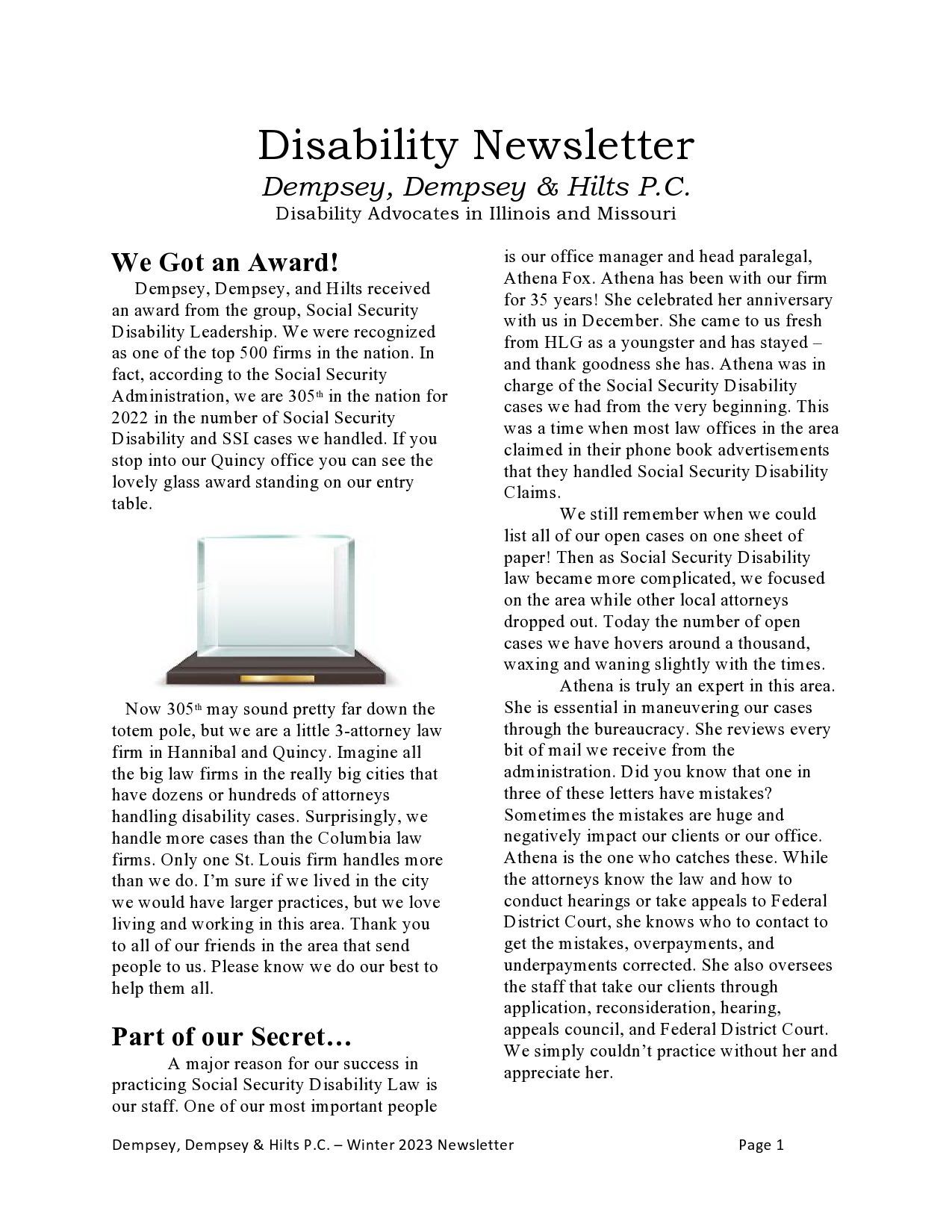Quincy Illinois Office (217) 222-2432
Hannibal Missouri Office (573) 221-2150
Blog
Legal Insights

06 Mar, 2023
We Got an Award! Dempsey, Dempsey and Hilts received an award from the group, Social Security Disability Leadership. We were recognized as one of the top 500 firms in the nation. In fact, according to the Social Security Administration, we are 305th in the nation for 2022 in number of Social Security Disability and SSI […]
The post Disability Newsletter – Winter 2023 appeared first on Dempsey, Dempsey & Hilts P.C..
30 Apr, 2020
Written by Nancy Altman: The CARES Act was intended to provide emergency payments as quickly as possible. Yet over a month after the bill became law, those emergency payments are not yet all out the door. Even for those who’ve received them, $1200 emergency payments for eligible adults and $500 emergency payments for each eligible dependent child […]
The post Let’s Make Sure The COVID-19 Response Doesn’t Threaten Social Security appeared first on Dempsey, Dempsey & Hilts P.C..
20 Mar, 2020
At this time the IL Governor has issued a shelter in place order. While the courthouses are essentially closed we are still able to file electronically and telephone conferences are being held. Currently we are offering free initial consultations by telephone for both Bankruptcy and Social Security Disability. If you have a Bankruptcy hearing scheduled […]
The post COVID19 and Our Law Office appeared first on Dempsey, Dempsey & Hilts P.C..
Call Today 217-222-2432
No Obligation. Free Consultation.
Office: Quincy Illinois Office
Phone: (217) 222-2432
Address: 236 North 6th, P.O. Box 331
Quincy, Illinois 62306
- Mon - Thu
- -
- Friday
- -
- Sat - Sun
- Closed
Content, including images, displayed on this website is protected by copyright laws. Downloading, republication, retransmission or reproduction of content on this website is strictly prohibited. Terms of Use
| Privacy Policy